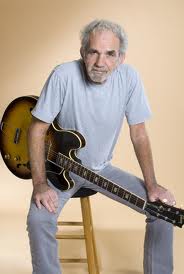J.J. Cale Passes Away at 74

J.J. Cale, an embodiment of the term singer-songwriter who influenced countless fellow artists, died Friday (July 26) in La Jolla, Calif. He was 74. The cause of death was a heart attack, according to published obituaries.
Cale was perhaps best known as the author of “After Midnight” and “Cocaine,” two songs covered and made famous by Eric Clapton. His compositions were also interpreted by Lynyrd Skynyrd ( “Call Me the Breeze” ), Waylon Jennings ( “Clyde” ), Freddie King, Bobby “Blue” Bland, Captain Beefheart, The Allman Brothers Band, Chet Atkins, Johnny Cash, Santana, Maria Muldaur, the Band, Beck, Widespread Panic and moe, among many others. A multi-instrumentalist with a laid-back style, Cale’s influence also spread to artists such as Neil Young, Mark Knopfler and Bryan Ferry.
On his website’s bio, Cale is quoted as saying, “Basically, I’m just a guitar player that figured out I wasn’t ever gonna be able to buy dinner with my guitar playing so I got into songwriting, which is a little more profitable business.”
Born John Weldon Cale in Oklahoma City on Dec. 5, 1938, and raised in Tulsa, Cale played in both rock and roll and Western swing bands as a teen, including one that included future star Leon Russell. Cale moved to Los Angeles in the early ’60s and worked as a recording engineer while trying to make inroads as a performer.
His first single, “Shock Hop,” was released in 1958 under the name Johnny Cale and he released several other unsuccessful singles as the Johnny Cale Quintet and, finally, as J.J. Cale, in the early and mid-’60s. (He used the initials so as not to be confused with Velvet Underground co-founder John Cale.) In 1968, he and several other musicians made a studio album called A Trip Down the Sunset Strip as the Leathercoated Minds, although no group of that name actually existed. In L.A. Cale briefly worked with the duo Delaney and Bonnie before they hit it big in the late ’60s, but when it appeared that his career was stalled Cale returned to Tulsa.
His big break came in 1970 – when Cale was already in his early 30s – when Clapton heard and recorded “After Midnight,” a song Cale had written and released as a single on the Liberty label in 1966. Clapton included his rendition on his first solo LP and also released it as a single, which reached number 18 on Billboard’s singles chart and set off a run of Cale covers by other artists: Jerry Garcia and Merl Saunders performed and recorded “After Midnight” and Clapton revisited Cale’s catalog with “Cocaine” on the 1977 hit album Slowhand.
Cale’s own debut album, Naturally, wasn’t released until early 1972 and it became his best-seller, reaching number 51. Cale – who often produced, engineered and played many of the instruments on his own recordings; he released 14 albums in all – would chart with seven more albums through 1990 (and with four singles, the best-selling being 1972’s “Crazy Mama” ). But it was ultimately his songwriting – and the interpretations of those songs by other artists – that brought Cale wide respect. His blues-informed, folksy style is the most prominent representation of what came to be known as the “Tulsa Sound,” although he lived and worked in Nashville and Los Angeles as well.
Cale’s most recent release was Roll On in 2009 on the Rounder label. Clapton (who has continued to cover Cale’s songs to the present day – his recently released Old Sock album includes Cale’s “Angel” ) appears on the album. Cale and Clapton also recorded a full album of duets in 2006, The Road to Escondido, which won a Grammy for Best Contemporary Blues Album.




















